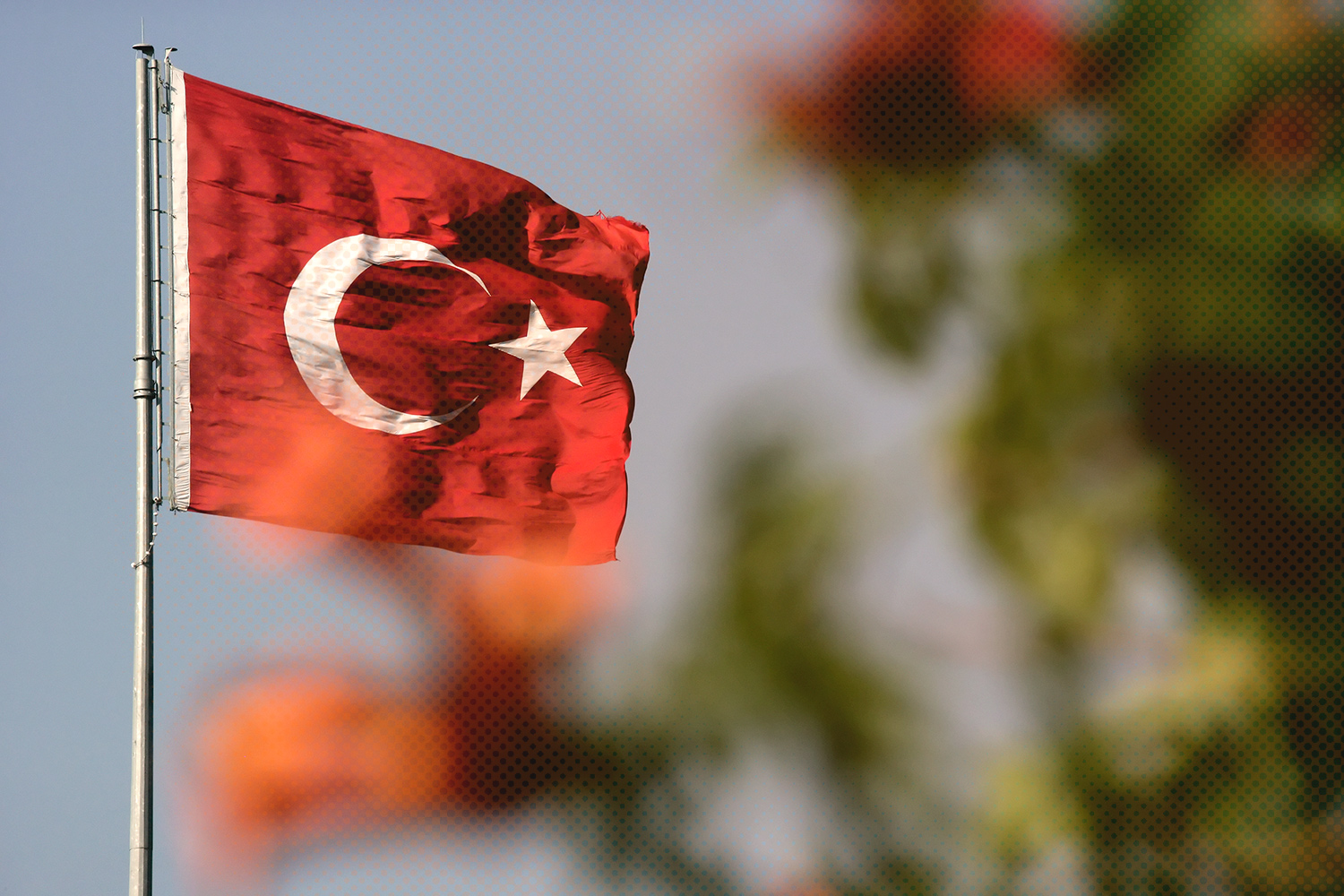News erupted July 15 that Turkey was in the midst of a coup. It failed in the end, and now the government of President Recep Tayyip Erdogan is in the midst of a major crackdown.
Tens of thousands of people, including judges, have been fired or arrested and deans of colleges and universities have been asked tIstanbulo resign. On Thursday, Erdogan placed the country under a three-month state of emergency that gives the government sweeping powers to squelch perceived threats to democracy.
John M. Owen is the University of Virginia’s Ambassador Henry J. and Mrs. Marion R. Taylor Professor of Politics and a faculty fellow at the Institute for Advanced Studies in Culture. He is an expert in international relations and his newest book is “Confronting Political Islam: Six Lessons from the West’s Past.” Owen talked with UVA Today about the developments in Turkey and their potential impact.

John M. Owen is the Ambassador Henry J. and Mrs. Marion R. Taylor Professor of Politics and a faculty fellow at the Institute for Advanced Studies in Culture. (Photo by Dan Addison/University Communications)
A. It’s hard to say precisely, but the long tug-of-war between the Turkish military and Erdogan’s party obviously is not over – or at least, was not until the coup failed.
Turkey’s army has had a great deal of power and autonomy since the founding of the country in 1923, and it sees itself as guardian of the country’s secularism. Erdogan and the Justice and Development Party, on the other hand, have Islamist roots. So there is a contest over who has the power in Turkey and what kind of country Turkey will be.
Prior to the coup, most analysts agreed that Erdogan had subdued the military to the point where no more coups would be attempted, but obviously that was not the case. --- John M. Owen, Ambassador Henry J. and Mrs. Marion R. Taylor Professor of Politics
There also are particular differences between the military and Erdogan over the civil war in neighboring Syria. The military are adamantly anti-Islamist, whereas Erdogan appears to have been lax in allowing people to enter Syria from Turkey to join ISIS. The recent terrorist attack at the airport in Istanbul, which killed 41 people and was probably carried out by ISIS, may have set off elements in the Turkish military who thought Erdogan must be stopped.
Prior to the coup, most analysts agreed that Erdogan had subdued the military to the point where no more coups would be attempted, but obviously that was not the case. On the other hand, clearly the military itself was divided over the coup. We still have conflicting reports over precisely who engineered it and why. There is evidence that some officers in the Turkish air force had a major role. The air force has been cooperating with the U.S. Air Force, which has been using a Turkish air base to launch air strikes into Syria against ISIS.
Q. Who was behind the coup?
A. Erdogan’s government accuses his rival, Fethullah Gulen – a fellow moderate Islamist, one-time ally, now enemy living in self-imposed exile in Pennsylvania – of being behind the coup.
Although Gulen has thousands of followers in Turkey, including in the institutions that Erdogan is now purging, I am skeptical that Gulen was behind the coup. Anything is possible in politics, but Gulen has never been a natural ally of the secularists in Turkey.
I also doubt Gulen’s own hypothesis that Erdogan engineered the coup himself to justify what he is doing now.
As to why the coup failed: it looks like sheer incompetence. To put it in cold-blooded terms: a successful coup is much more likely if you capture the head of the government you are trying to overthrow. This group did not do that, and that allowed Erdogan to rally the people and police to himself. The incompetence may have resulted from misjudgment about the popularity of Erdogan or perhaps the plotters were in a hurry and rolled the dice.
Q. Did the Syrian refugee crisis have a role in the coup attempt?
A. Not directly, I think. But the Syrian civil war has greatly complicated politics within Turkey in general.
As to why the coup failed: it looks like sheer incompetence. To put it in cold-blooded terms: a successful coup is much more likely if you capture the head of the government you are trying to overthrow. -- Owen
Syria shares a border with Turkey and transit across the border has not been difficult. Some military officers suspect that Erdogan is either sympathetic to ISIS or at least too soft on ISIS because he is an Islamist, although a comparatively moderate one. This matters because ISIS is capable of carrying out attacks in Turkey, and indeed it was probably they who did so in late June at the airport in Istanbul, killing 41 people.
Erdogan surely knows that if ISIS becomes too powerful it threatens him as well, but he has been trying to use ISIS to weaken Assad’s government in Syria, with which he has bad relations, and even more than that, to weaken the Kurds in Syria, whom he sees as Turkey's main enemy. Erdogan has been thinking about ISIS in the short term: use them now to squash the Kurds and let Russia, Iran and the West defeat ISIS in the long term.
Another complication; the United States is cooperating with a Kurdish group in Syria, the Kurdistan Workers’ Party or YPG, that Turkey officially regards as terrorist.
Q. The government crackdown has been swift and broad. Why is the government taking these actions and can you describe what powers the state of emergency grants?
A. Erdogan is following the old political saying, “Never let a crisis go to waste.” A state of emergency is a tried-and-true way for a leader in a constitutional republic to become a dictator.
Of course, states of emergency sometimes are necessary and do not always lead to an abandonment of democracy. France has been in a state of emergency since the terrorist attacks in Paris of last November. But the difference is that before the coup, Erdogan already was centralizing power and moving Turkey away from democracy. I am afraid that he is exhibiting a familiar combination of paranoia and an insatiable lust for power. He sees enemies everywhere and has stated that more coups may be attempted.
Erdogan is following the old political saying, “Never let a crisis go to waste.” A state of emergency is a tried-and-true way for a leader in a constitutional republic to become a dictator. -- Owen
It may seem odd that he would go after academics after a failed military coup, but Erdogan knows that many educators are committed to Turkey’s traditional secularism and do not vote for his party.
The state of emergency allows Erdogan’s government to bypass parliament and implement decrees that have the force of law. Essentially, it allows Erdogan to rule by decree for three months.
Q. What do these actions mean for democracy in Turkey, European Union-NATO relations and U.S.-Turkish relations?
A. Clearly this means Turkey’s claim to being a constitutional democracy, already tenuous for the past two years, has collapsed.
The state of emergency is set to expire after three months, but of course Erdogan could extend it at will. Even if he does not, the damage to the rule of law in Turkey will be lasting. Erdogan will have repopulated the courts, military, bureaucracy, universities, schools and media outlets with his people, to the point where he may not need a state of emergency to have the control he craves over the country. He is on a path to being more powerful than Mustafa Kemal Ataturk, the founder of modern Turkey.
The end of Turkish democracy will mean that Turkey will not be able to join the European Union. Its candidacy was already on ice, after looking promising a decade ago, but there is no chance of a thaw anymore.
Although NATO now requires new members to be democracies, there is ample precedent for a non-democracy to remain a member. Indeed, during Turkey’s periods of military dictatorship during the Cold War it remained a NATO member.
The end of Turkish democracy will mean that Turkey will not be able to join the European Union. Its candidacy was already on ice, after looking promising a decade ago, but there is no chance of a thaw anymore. --- Owen
But the difference then was that Turkey remained staunchly anti-communist and agreed with the United States and Western Europe that Soviet power in the Middle East must be contained. Today, by contrast, Erdogan’s priorities do not line up so well with those of the United States and NATO. He really does not like the way America has been working with the Kurdistan Workers’ Party in Syria, because he believes the YPG is a major threat to Turkish domestic security.
After a period of alienation from Russia, starting last November when Turkish pilots shot down a Russian bomber headed to Syria, Erdogan has started to try to make friends with Putin. Indeed, the Turkish government just detained the pilots who downed the Russian bomber. Obviously, an alignment with Russia would put Turkey at odds with NATO right now.
On the other hand, Erdogan’s foreign policy over the past year or so has alienated just about all of Turkey’s neighbors. The overture to Russia is a sign of desperation. Erdogan even has reached out to Israel over the past few weeks. If he needs friends so badly, he may be able to reach an accommodation with NATO.
Q. Can any good come from this?
A. The one silver lining is that Erdogan’s government plans to alter Turkey’s constitution to give the civilian government more control over the military. Civilian control is essential to constitutional democracy. But it is a razor-thin silver lining in Turkey’s case, overshadowed by the darkness that is deepening in the country and that likely will not lift for many years.
Q. Can you describe the United States’ reaction to the unrest thus far and what competing interests it must take into account moving forward?
A. Thus far, the Obama administration has made clear its strong opposition to the coup and hence its support for Erdogan as elected president of Turkey, and also its concern that the Turkish government not exceed the bounds of law in punishing those responsible and eliminating threats of future coups and unrest.
The Obama administration is walking a delicate line; it does not like either Erdogan’s recent moves away from democracy – which, again, preceded the coup attempt – or much of Erdogan’s foreign policy, especially as concerns Syria. But it is going to have to deal with an even more powerful Erdogan now. The standard U.S. policy in such cases, seen in relations with Egypt, Saudi Arabia, etc., is to work with the authoritarian government on common security concerns (military, intelligence, etc.), but be careful not to endorse its authoritarianism publicly and to press leaders to improve their human rights records. American presidents always try to take care not to push these authoritarians too hard, for fear that they might cozy up to U.S. rivals, Russia and China being the two leading candidates.
In other words, America and Turkey have long been dance partners, but now Turkey has changed its character and Washington knows that the kind of dance has to change, too.
Media Contact
Article Information
July 25, 2016
/content/uva-expert-failed-coup-imperils-turkeys-relationship-west

